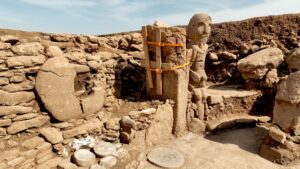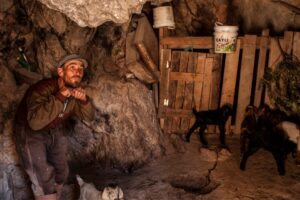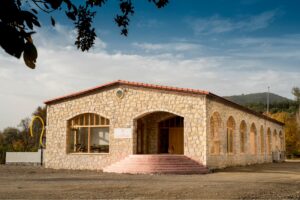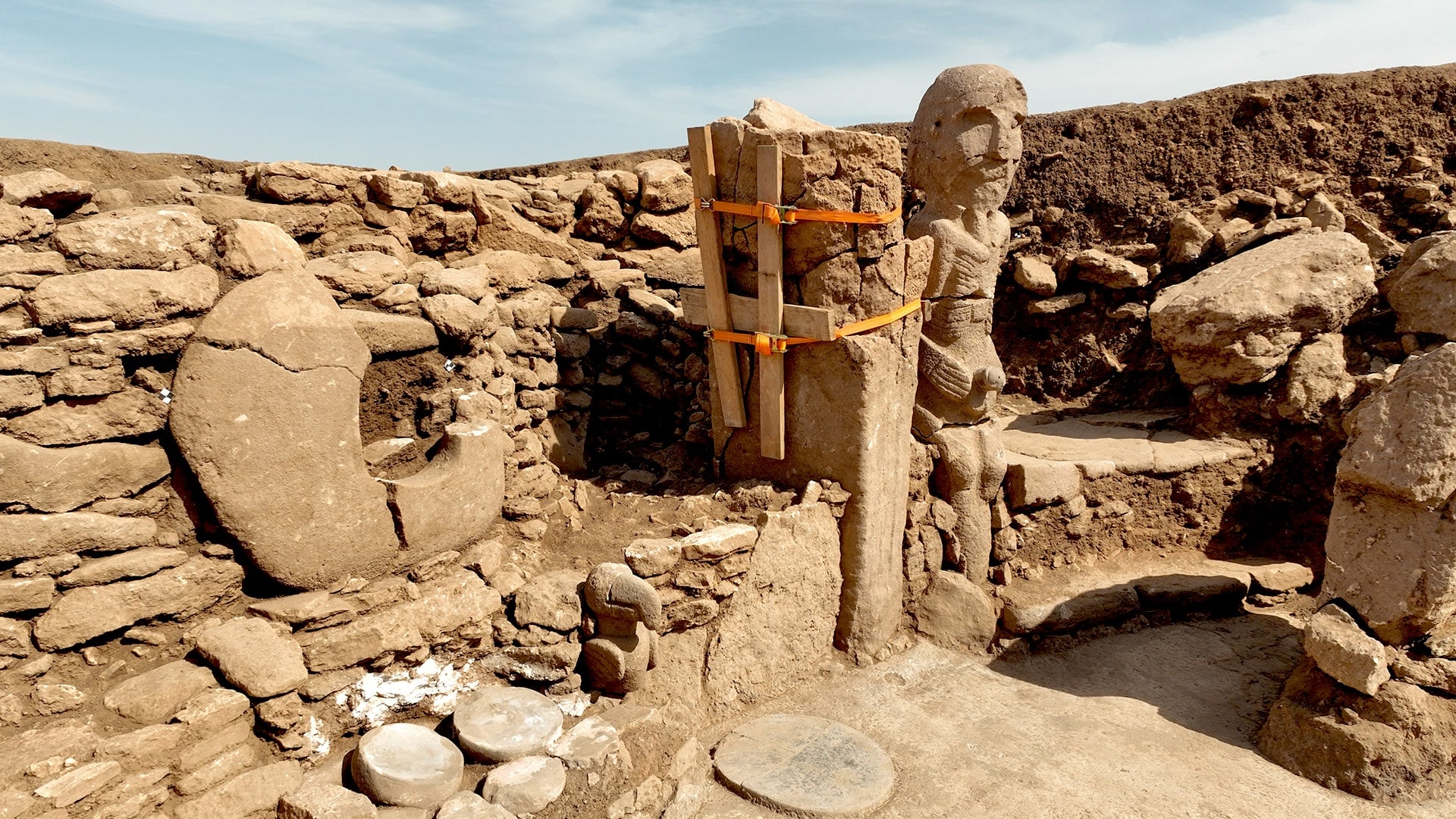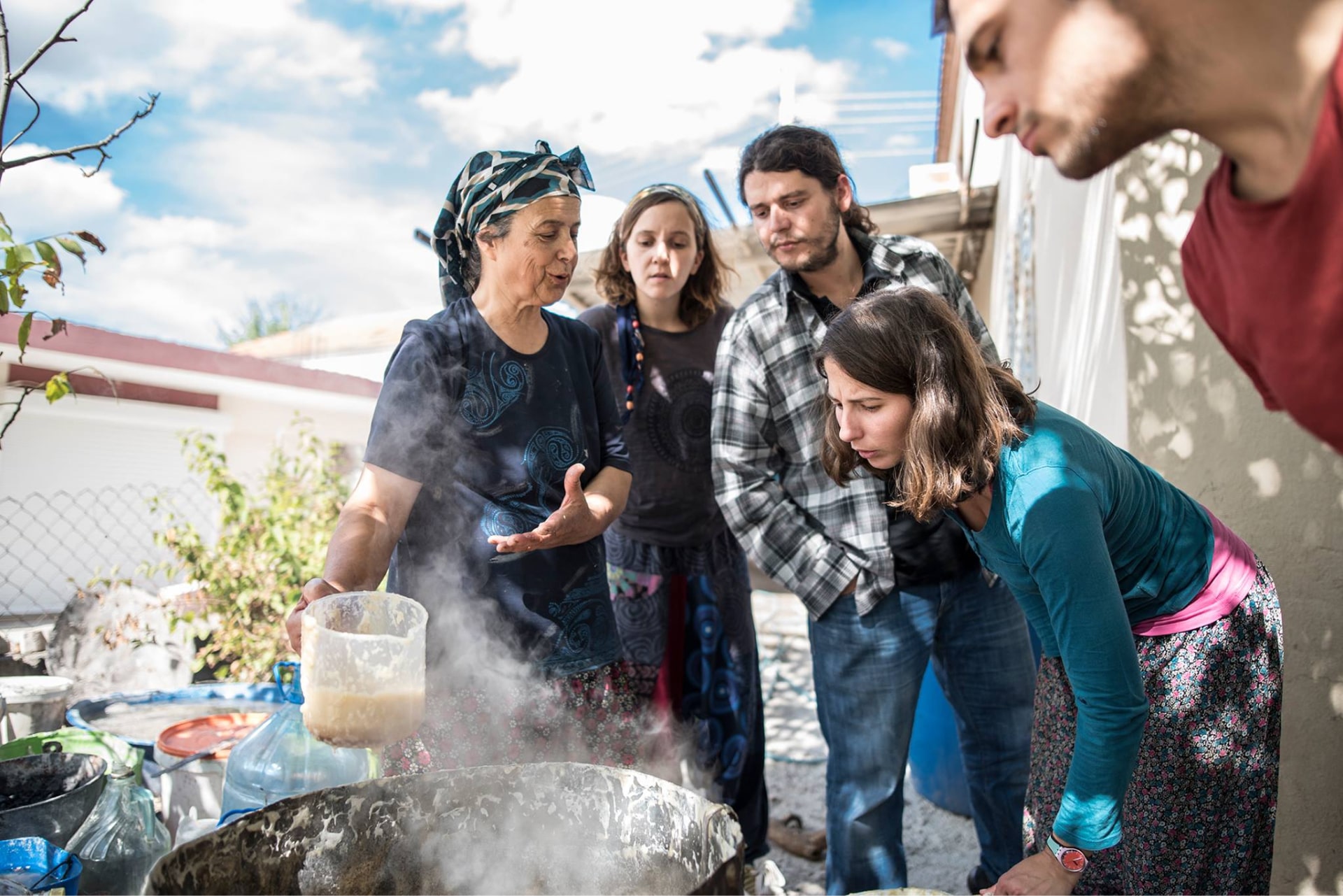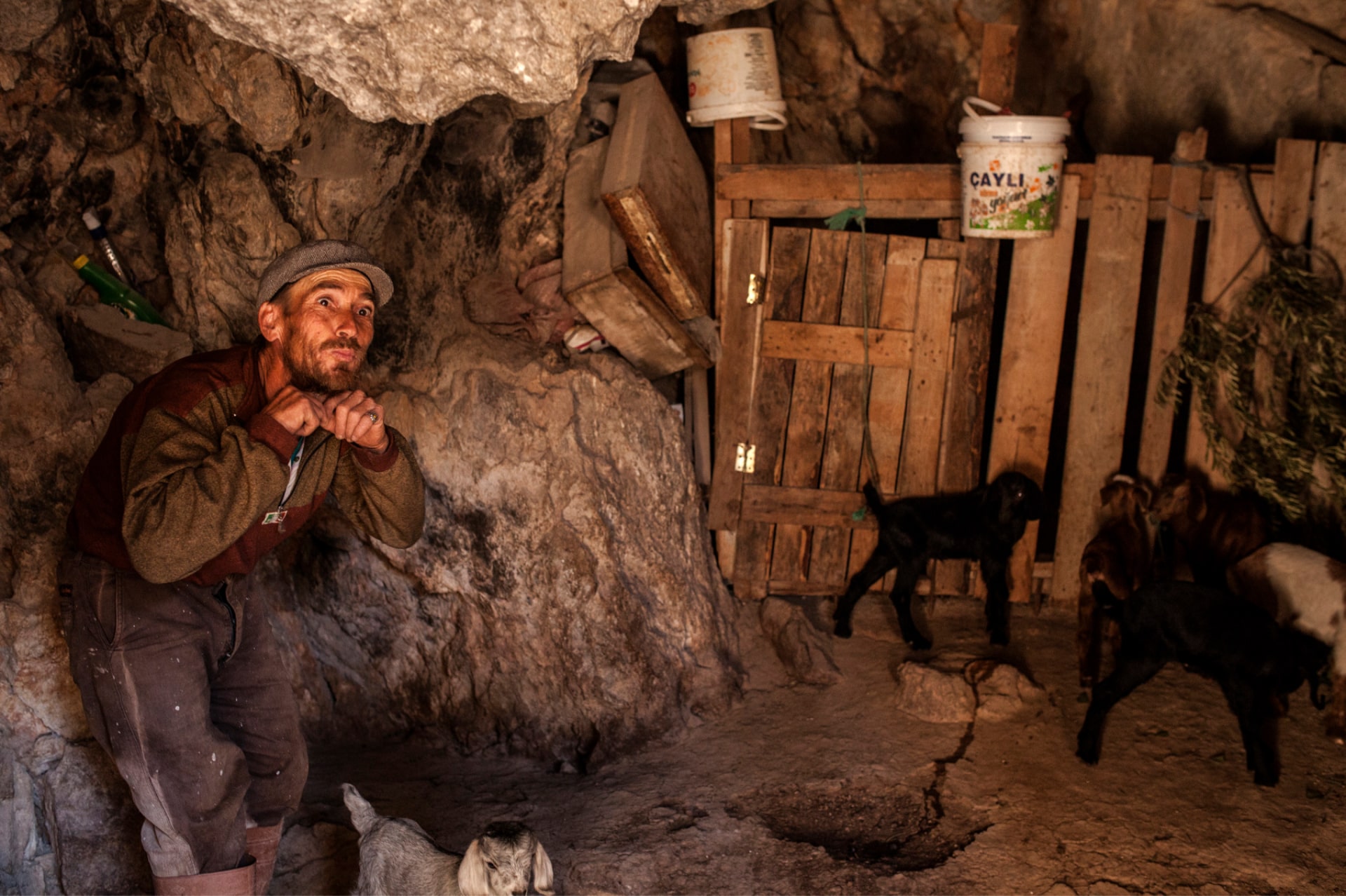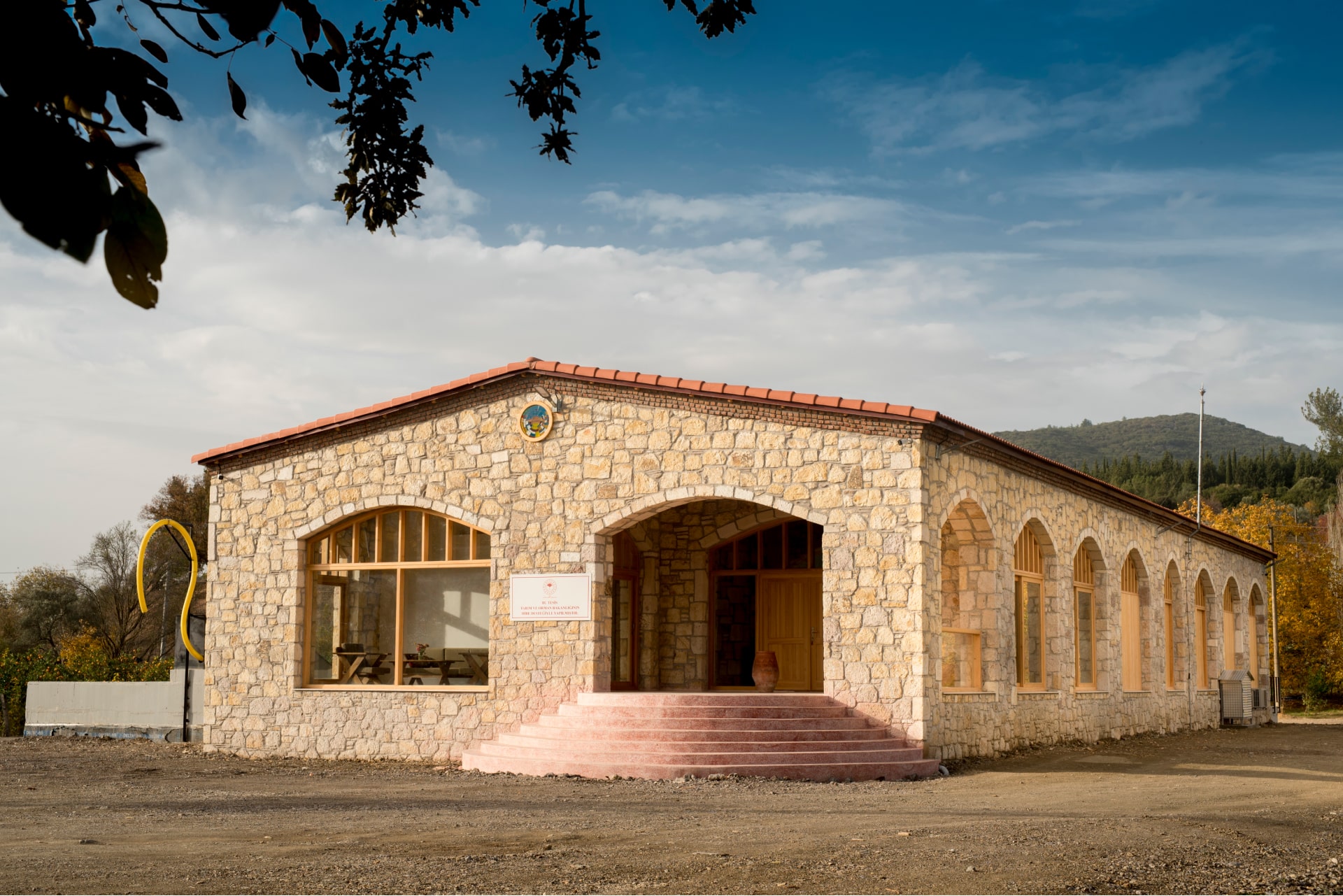At the 2021 Culture Summit of United Cities and Local Governments (UCLG) held in Izmir, a new conceptual framework was introduced for regenerating life on Earth: Circular Culture. Developed by the Izmir School team, the Circular Culture concept positions culture not as a separate sector, but as the binding force that connects all human activity—like sap within a tree. Whether we speak of urbanism, science, art, or politics, culture permeates all; it is the mortar that holds everything together.
Circular Culture rests on four foundational pillars:
- Harmony with nature
- Harmony with each other
- Harmony with the past
- Harmony with change
Harmony with Nature
Nature is not merely an environment that surrounds us, nor a passive stage for human action—it is life itself. The modern world has largely failed to develop landscapes that recognize and integrate this fundamental fact. As a result, we now face the cascading crises of our era: climate breakdown, biodiversity loss, pollution, and more. The first pillar of Circular Culture, therefore, calls for a renewed relationship with the natural world, grounded in an appreciation of nature’s rights and ecological interconnectedness.
Harmony with Each Other
Transforming our world demands a culture of equity and inclusion. The second pillar of Circular Culture emphasizes harmony with one another—a call for deep, everyday democracy that ensures equal citizenship at all levels of life. This includes political, social, and economic justice, as well as collective resilience.
At Izmir School, we study the Anatolian concept of Imece, a traditional form of cooperative action and mutual aid that serves as a cultural foundation for participatory democracy. Inspired by this spirit, we also work on economic democracy and ecological democracy as main applications of Circular Culture.
Economic democracy refers to a model of economic life where decision-making power is shared more equitably among all citizens. It supports local production, fair labor, cooperative ownership, and community wealth-building, placing people and their needs at the center of the economy.
Ecological democracy is a transformative approach to governance that fully integrates the rights of nature into civic life. It redefines democracy as a system rooted in coexistence with the natural world, challenging anthropocentrism and advancing a model where ecological sustainability and democratic renewal go hand in hand.
Together, these ideas frame a vision of democracy that is not only inclusive of all people but also of the ecosystems we depend on—fostering harmony between society, economy, and nature.
Harmony with the Past
The third pillar stresses the importance of cultural continuity. It is impossible to shape the future without recognizing and engaging with the diverse legacies of past civilizations. Across continents and centuries, cultures have developed systems of knowledge, adaptation, and stewardship that remain highly relevant today. These legacies are not static—they are vital sources of creativity and innovation.
In this context, we place a special emphasis on archaeoecology—a scientific discipline that integrates archaeological, paleoecological, and contemporary ecological records. Archaeoecology examines how biogeographic patterns have shaped human ecology and how past cultures have interacted with ecosystems over time. Its goal is to understand and reconstruct human history in its full environmental and cultural context.
To support this work, we employ methodologies from archaeology, historical anthropology, and cultural studies to revitalize traditional knowledge systems and reweave them into contemporary practice. This enables us to preserve cultural identity while fostering innovation for a sustainable future.
Harmony with Change
The fourth pillar affirms a principle articulated by the ancient philosopher Heraclitus of ancient Izmir: The only constant is change. This insight guards against turning culture into dogma or power structures. Embracing change is essential for just, democratic, and adaptive societies. Harmony with change calls on us to remain open to transformation while staying grounded in ecological, cultural, and social systems.
At Izmir School, this principle informs our work in adaptive systems design, where we apply theories from resilience engineering, dynamic systems theory, and scenario planning. We aim to develop strategies and spatial models that are not only resilient in the face of crisis, but also anticipatory—designed to thrive amid uncertainty.
Interdisciplinary Tools of Circular Culture
Across all four pillars, Izmir School uses interdisciplinary tools and frameworks to advance the theory and practice of Circular Culture. Our work includes:
- Ecological modeling and systems thinking to develop practices aligned with natural processes
- Social network analysis and participatory research to promote inclusive governance
- Historical and archaeological inquiry to integrate local cultures into innovation
- Foresight methods to support adaptive responses to change
Join us in developing a new paradigm for living—one that harmonizes ecological integrity, social equity, cultural continuity, and adaptability in an ever-changing world.
